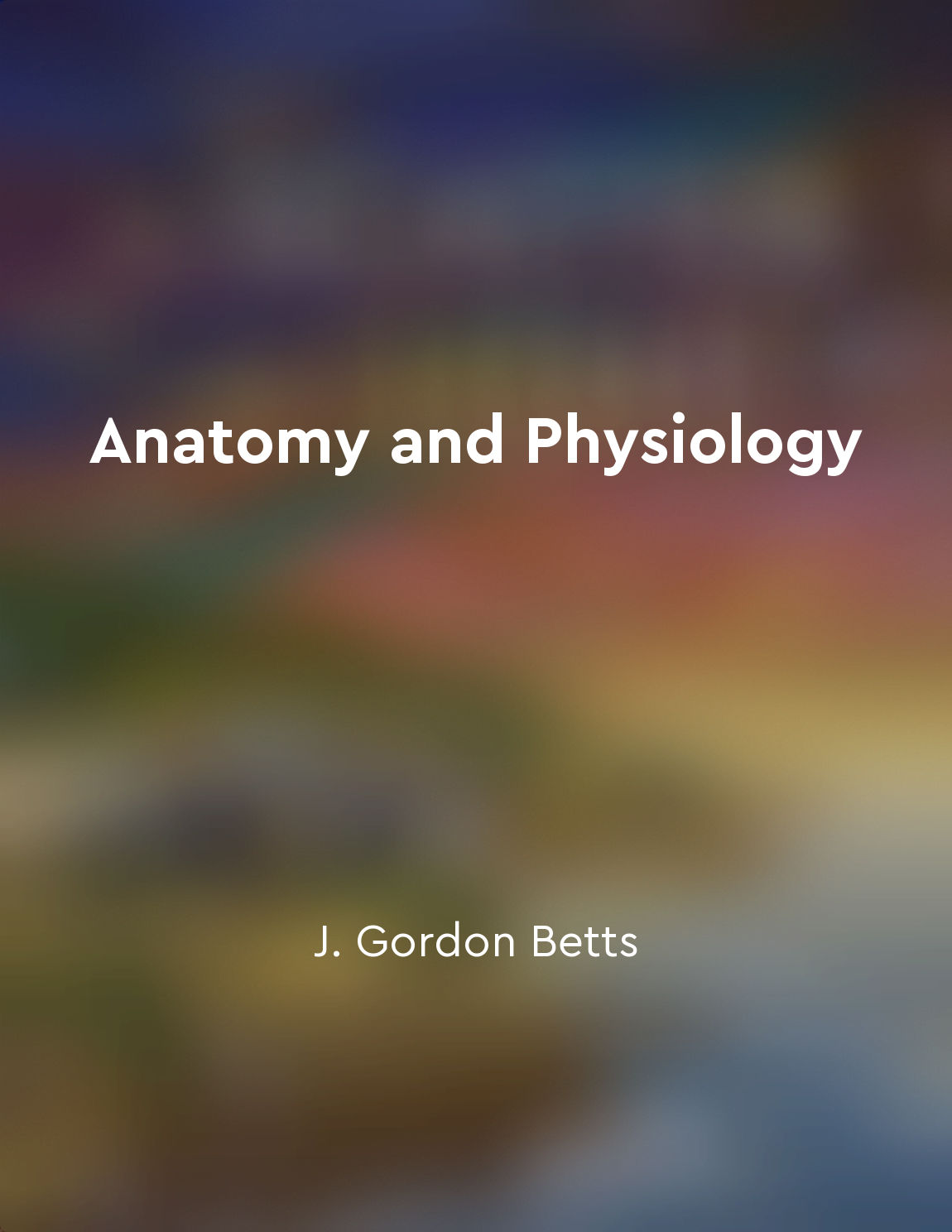Audio available in app
The respiratory system facilitates gas exchange from "summary" of Anatomy and Physiology by J. Gordon Betts,Peter DeSaix,Jody E. Johnson,Oksana Korol,Dean H. Kruse,Brandon Poe,James A. Wise,Mark Womble,Kelly A. Young
The exchange of gases is a crucial process in the human body, allowing for the intake of oxygen and the removal of carbon dioxide. This exchange occurs in the respiratory system, a complex network of organs and tissues dedicated to this vital function. The process begins with the inhalation of air through the nose or mouth, which then travels down the trachea and into the lungs. Within the lungs, the air reaches the alveoli, tiny sacs where gas exchange takes place. These alveoli are surrounded by capillaries, allowing for the transfer of gases between the air and the blood. Oxygen from the air diffuses across the walls of the alveoli into the bloodstream, where it binds to hemoglobin in red blood cells for transport to tissues throughout the body. At the same time, carbon dioxide, a waste product of cellular respiration, diffuses from the blood into the alveoli to be exhaled from the body. This process is essential for maintaining the body's oxygen levels and removing carbon dioxide, which can be harmful if allowed to accumulate. The respiratory system regulates gas exchange through mechanisms such as control of breathing rate and depth to meet the body's changing needs. In addition to gas exchange, the respiratory system also plays a role in other physiological processes, such as regulating blood pH and vocalization. Its intricate structure and functions highlight the importance of this system in maintaining homeostasis and supporting overall health.- The respiratory system's ability to facilitate gas exchange is fundamental to human survival, ensuring that the body receives the oxygen it needs for cellular function while eliminating waste gases to maintain proper physiological balance.
Similar Posts
Avoid caffeine close to bedtime
Caffeine is a stimulant that can disrupt your sleep if consumed too close to bedtime. Its effects can last for several hours, m...
Take breaks to rest and recharge
Taking breaks to rest and recharge is a crucial aspect of maintaining a balanced and healthy lifestyle. In our fast-paced world...
Trust your intuition
Intuition is a powerful tool that we all possess, yet often ignore or dismiss. It is our inner voice, our gut feeling, guiding ...
Fuel your body with nutritious foods
When it comes to your fitness goals, what you put into your body is just as important as what you do in the gym. Think of your ...
Conscious breathing can improve athletic performance
Conscious breathing is a powerful tool that can have a significant impact on athletic performance. By focusing on our breathing...
Emotions influence brain function
Emotions play a crucial role in shaping our brain function. When we experience emotions, such as fear or joy, our brain respond...

Cognitive reframing can change our perspective on stress
When we experience stress, our minds can become clouded with negative thoughts and emotions. This can lead to a distorted view ...
The mind and body are interconnected in stress responses
When we experience stress, whether it is from work, relationships, or any other source of pressure, our body reacts in a physic...
The miracle of mindfulness is always available to us, here and now
In our daily lives, we often find ourselves caught up in the busyness and chaos of the world around us. We are constantly rushi...
Embracing imperfection can lead to greater resilience
In our society, there is a prevailing belief that perfection is the ultimate goal. We are bombarded with images of flawless ind...


